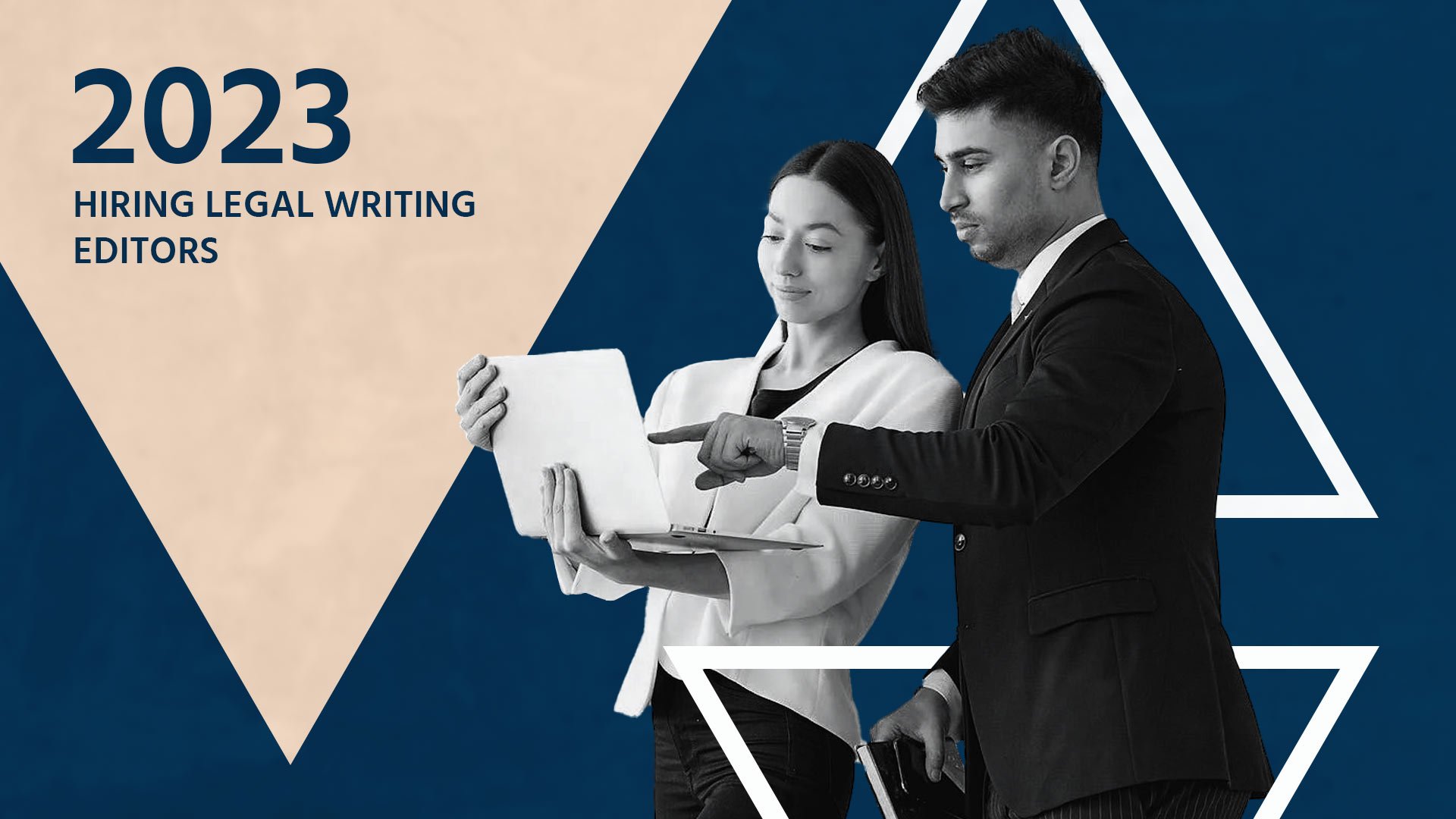The legal industry is changing quickly, and lawyers in 2023 need to stay ahead of the curve. Hiring great legal writing editors is critical for firms that want to remain competitive—but it can be challenging to recruit a team with the skills and experience necessary for successful document drafting, editing, and review.
This blog post will outline strategies and best practices for finding the right legal editing professionals in addition to introducing AI-based tools that are redefining the legal editing process. From understanding essential skills to using modern technologies like AnyLawyer, we will provide an end-to-end guide for hiring a top-notch legal writing editor in 2023.
Why editing legal texts is a challenge - even for legal professionals
The complexities of legal writing require legal writers editors to possess both the technical and interpersonal skills to spot errors, ensure accuracy, and provide high-quality feedback. To understand the skills necessary for a successful legal editor, we must first examine the documents they will be working on.
Legal writing involves complex structures, jargon-filled language, and long sentences that can easily get confusing or muddled—not to mention the potential for errors and inconsistencies. It is the responsibility of legal editors to review these documents in search of inaccuracies, typos, and grammatical issues that may hinder a case’s success.
Beyond simply catching mistakes, legal editing also requires an understanding of basic concepts like sentence structure and syntax. A great legal editor will be able to identify any unintentional errors as well as make conscious decisions about vocabulary, tone, and flow. The best legal editors must have a keen eye for detail and possess the ability to turn challenging language into clear, concise text that is both legally sound and reader-friendly.
Finding the right editor
In order to find the ideal legal writing editor for a law firm, it is important to understand the different types of legal editors and their respective roles. Generally speaking, an entry-level legal editor will have the basic skills needed to check for errors and provide feedback on documents. However, more experienced professionals may specialize in a specific field or practice area and possess a deep understanding of relevant laws and regulations.
When hiring legal editors, it is important to consider both experience and skill level. Take the time to outline the specific requirements for the editing team, such as qualifications, software proficiency, and area of expertise. Then use this information to develop a comprehensive job description that can be shared with potential hires. Finally, research the candidates’ backgrounds and compare them to the firm's standards in order to identify the ideal fit.
Using legal writing and editing tools
Once a firm has a team of legal editors on board, they can consider leveraging modern technologies like AnyLawyer for an even more efficient workflow. These AI-based technologies are revolutionizing the legal editing process by providing automatic error detection and content analysis. With tools like AnyLawyer, editors can quickly identify typos, syntax errors, and factual inaccuracies while ensuring that all documents remain legally sound and consistent with relevant policies.
These technologies are not only great for streamlining the legal editing process but also for reducing costs. By relying on AI-based tools instead of manual labor, firms can save time and money while ensuring the highest quality results.
.png?width=1920&height=1080&name=Presenation%20Slide%20VAR%203%20(2).png)
How to set up an effective legal writing and editing process
When setting up an effective legal writing process, it is important to consider the team’s workflow, available legal writing tools, and responsibilities. Furthermore, firms should take into account any special regulations or policies that may apply to their particular practice area.
1. Establish a workflow
Start by outlining the entire process from document creation to editing and review. This will help ensure that all team members are on the same page and know exactly what is expected of them.
2. Define roles and responsibilities
Each team member should have a clear understanding of their specific role and how it fits into the bigger picture. Establishing ground rules for communication and collaboration will help ensure that everyone is on track and working together.
3. Develop a policy
Create a policy document that outlines the firm’s expectations for legal writing, editing, and review. This will ensure consistency across all documents as well as provide guidelines for the team to follow.
4. Create a list of required skills
Create a list of skills, qualifications, and experience that are necessary for legal editors. This will help to ensure that any potential hires possess the knowledge and abilities needed to be successful. Crucially, remember about technical skills and the ability to use AI-based tools.
5. Choose the right tools
AI-based technologies like AnyLawyer can provide an efficient way to review legal documents and detect errors quickly. It is important to research the available tools and select the one that best meets the firm’s needs. A good general use editing tool - that is, one not aimed specifically at lawyers - can be a great way to catch any errors that may have been missed by the legal writing team.
Available writing and editing software options include:
- Spell checkers like PerfectIt, which help with spelling errors, typos, or inconsistent punctuation,
- Grammar checkers like Grammarly,
- Plagiarism checkers like Copyscape,
- Advanced editing tools like WordRake or BriefCatch, which scan the entire document in search of complex voice, passive voice, and complex sentences in order to improve the text's style, tone and readability;
- Formatting tools based on appropriate legal writing guidelines, such as Perfect it (American Legal Style), which can help with citation errors,
- Extensions for the most popular word processors like Microsoft Word and Google Docs (for example, AnyLawyer's Microsoft Word plugin),
- AI-based tools like AnyLawyer or Lightkey, which offer text prediction, real-time corrections, context-based suggestions, and more,
- Document automation platforms like DocuSign.
These tools can be used to ensure that all documents remain legally sound as well as improve the speed and accuracy of the legal editing process.
6. Implement the process and monitor progress
Once everything is in place, monitor the team’s progress and ensure that everyone is following the established guidelines. Make adjustments as necessary and provide feedback when needed.
The future of legal editing - will lawyers be able to work without AI?
As the legal industry continues to evolve, AI-based tools like AnyLawyer are becoming an increasingly integral part of the editing process. In 2023, people in the legal profession will need to be prepared for the use of technology in order to stay competitive. However, AI can only supplement—not replace—human editors when it comes to producing top-quality legal documents. AI-powered tools like AnyLawyer can help streamline processes and reduce costs, but they still require the expertise of a skilled editor to ensure accuracy and consistency.
No matter what the future holds for legal editing, one thing is certain: great legal writing editors will remain key to producing high-quality results in 2023 and beyond. By understanding the skills necessary for success, finding the right professionals, and leveraging modern technology, firms can be sure to stay ahead of the curve.
Ensuring the quality of legal documents with the help of a legal writing editor
Hiring trained legal editors in 2023 is an essential step for any successful legal team. With a thorough understanding of the editing process and the skills needed to succeed, law firms can use this blog post as a guide to finding the right professionals and leveraging modern technology for an efficient, cost-effective workflow.




